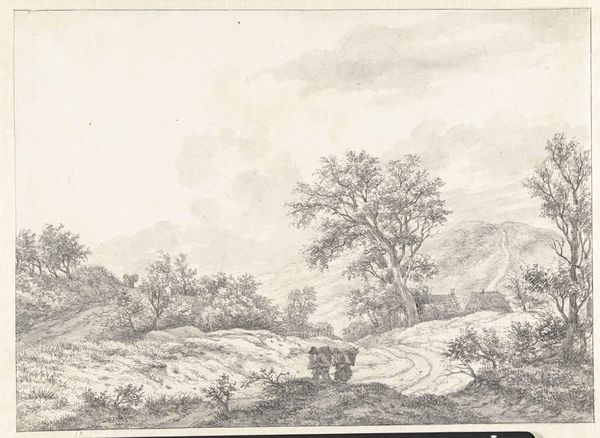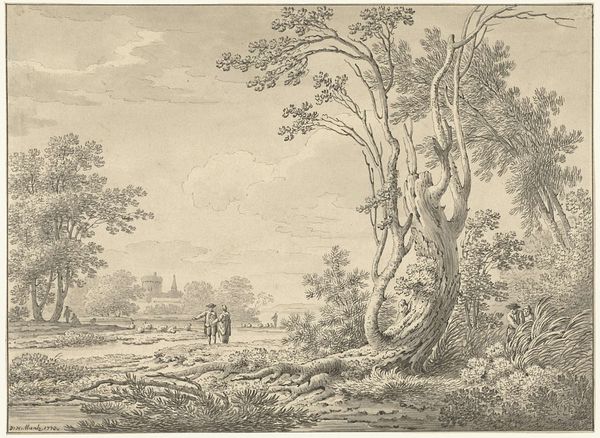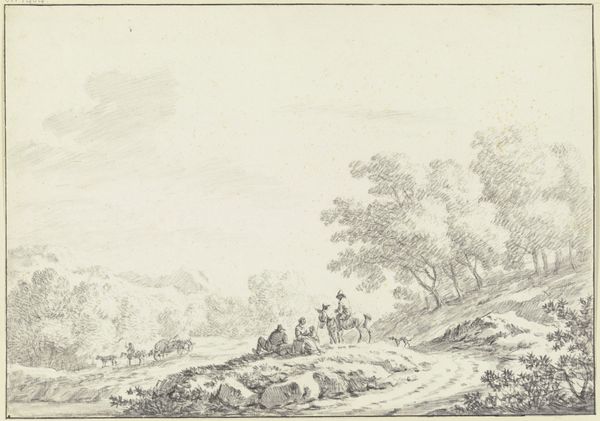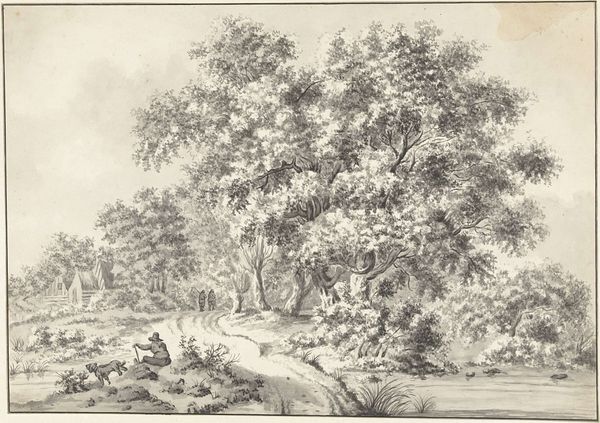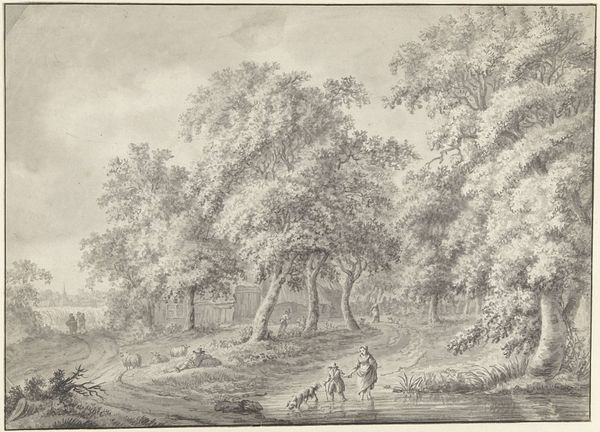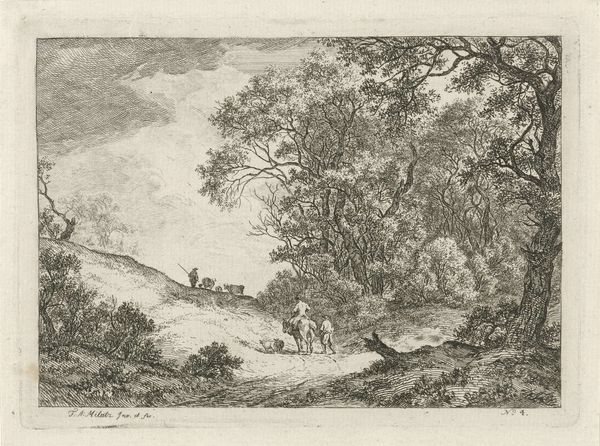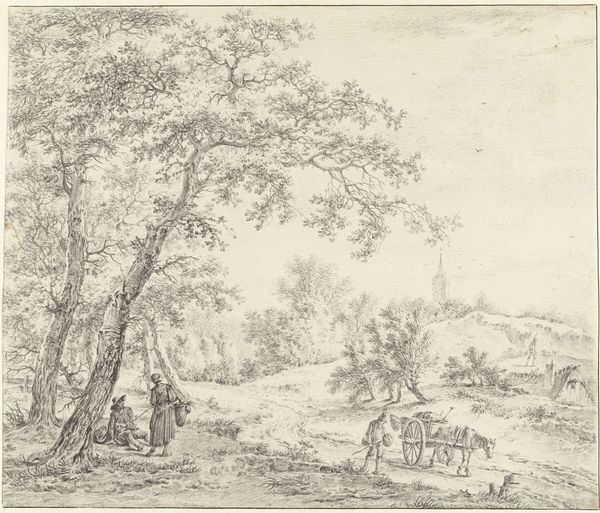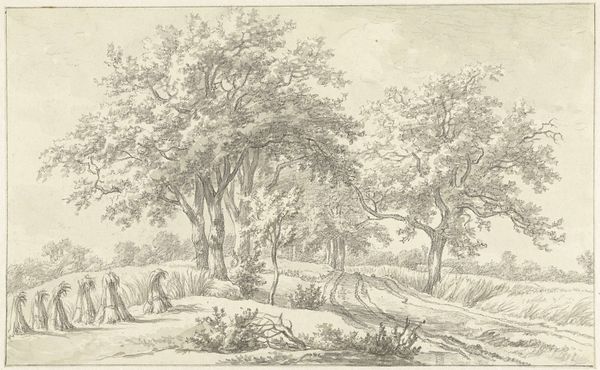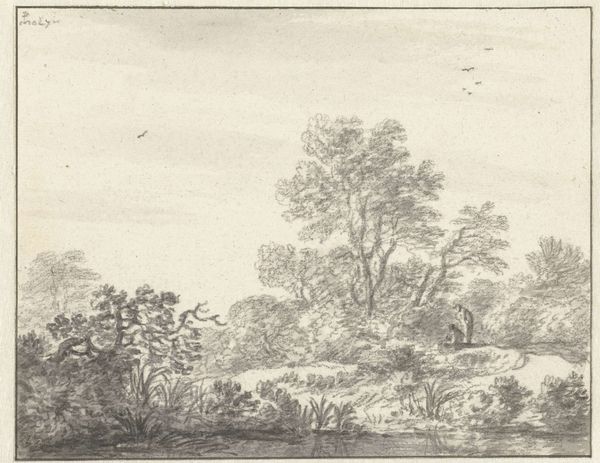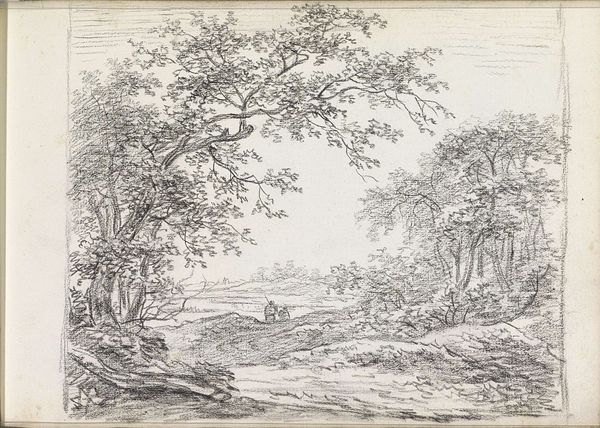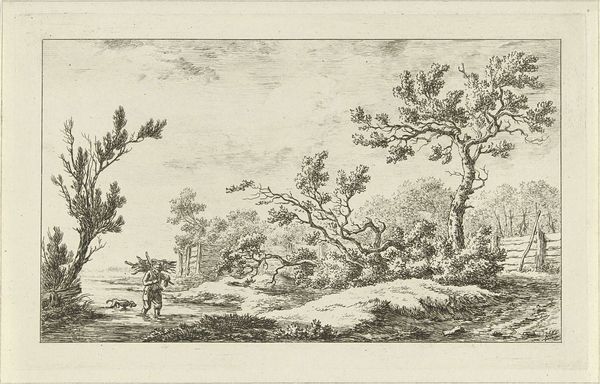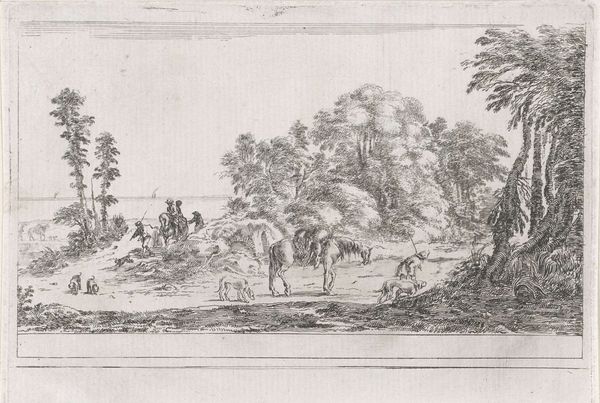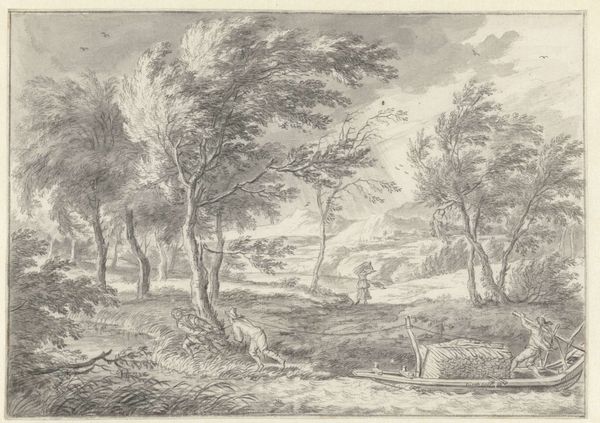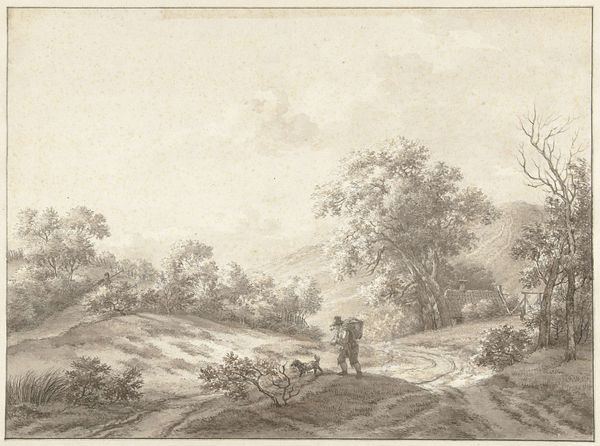
drawing, paper, ink
#
drawing
#
ink drawing
#
baroque
#
landscape
#
figuration
#
paper
#
ink
Dimensions: height 263 mm, width 322 mm
Copyright: Rijks Museum: Open Domain
This landscape drawing was created by Dirck Dalens II in the 17th century. At its heart lies the archetypal motif of the journey, embodied by the figures of a horseman and his servant traversing a wooded path. The horseman, with his commanding gesture towards the horizon, evokes the "aktive Mensch," a figure of agency and direction, much like the allegorical figures in classical art. His raised hand, a signal of command, echoes through art history, resurfacing in Renaissance depictions of generals leading armies, and even in modern political iconography. The forest itself, dense and enveloping, serves as a powerful symbol of the subconscious. Historically, the forest has been a place of both refuge and danger; a realm where societal norms dissolve, and primal instincts take over. It's a motif seen from ancient fairy tales to Romantic paintings, each time resonating with our deepest fears and desires. The landscape is not merely a backdrop but a stage where human dramas unfold, forever echoing through our collective memory.
Comments
No comments
Be the first to comment and join the conversation on the ultimate creative platform.
